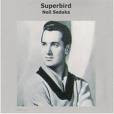
To cut a very long and tedious story short, during the latter part of the 1990s my life was spiralling downwards into uncertainty and boredom. For various reasons, things just weren’t right and it was beginning to bug me big time.
By Christmas 1998, I had become extremely weary of all the monotony and tedium and there was no getting away from it - my life was in a rut. This all came to a head when, in order to meet a work deadline, I had left my family visiting relatives and found myself home alone on Boxing Day afternoon working on some client reports. In the decorated tinsel-land of the silent house, I felt depressed and irritated so to sooth my temper I played a newly purchased CD, ‘Sleepless’ by Kate Rusby.
At the time I was rediscovering my love of traditional English folk and had discovered Kate through some glowing reviews in the music press. ‘Sleepless’ is her second album and at the time of its release she was just beginning to make a name for herself as a unique talent in the folk community. Her mix of traditional and self-penned songs delivered in her trademark Barnsley accent seemed a breath of fresh air in the often-stultifying atmosphere of the music industry.
However by track 4, the haunting and melancholic ‘Unquiet Grave’, Kate’s beautiful northern vowels and understated piano were too much for me in my then state of mind and I slumped on the sofa with tears in my eyes. Something had to change. With so many beautiful things in the world, and Kate’s voice was one of them, why was I inflicted such misery on myself? It was the kick up the ass that I needed. Who’d have thought a struggling folk singer and her music could wield such power?
But actually they can. Folk music can be incredibly powerful as it carries with it centuries of human achievement and struggle. There is a certain gravitas that accompanies songs that are so old as to impart a sort of world-weary wisdom and I needed some just then.
A year later, I had found a new position at work, sorted out some other issues and felt much better. For Christmas 1999 I took a long holiday and it was bliss. Life’s too short. Thanks Kate.
I’m going to take a short break over this Christmas holiday as well, so Christmas greetings to all my readers and best wishes for the New Year. I’ll be back sometime after New Year’s Day with yet more musical musings. See you then but in the meantime enjoy Kate's 'The Wild Goose'. Oh, and if you want to read more about my theories about pop music don't forget my book!






























